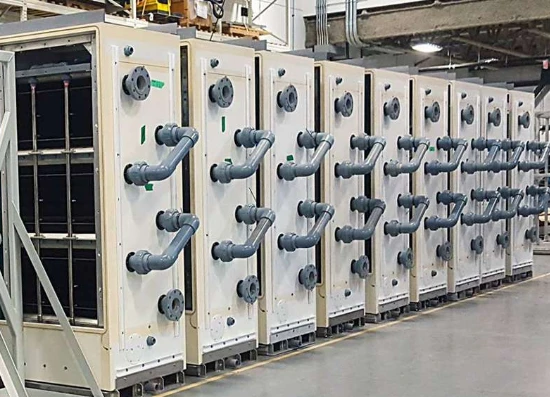
-
 Afrikaans
Afrikaans -
 Albanian
Albanian -
 Amharic
Amharic -
 Arabic
Arabic -
 Armenian
Armenian -
 Azerbaijani
Azerbaijani -
 Basque
Basque -
 Belarusian
Belarusian -
 Bengali
Bengali -
 Bosnian
Bosnian -
 Bulgarian
Bulgarian -
 Catalan
Catalan -
 Cebuano
Cebuano -
 China
China -
 China (Taiwan)
China (Taiwan) -
 Corsican
Corsican -
 Croatian
Croatian -
 Czech
Czech -
 Danish
Danish -
 Dutch
Dutch -
 English
English -
 Esperanto
Esperanto -
 Estonian
Estonian -
 Finnish
Finnish -
 French
French -
 Frisian
Frisian -
 Galician
Galician -
 Georgian
Georgian -
 German
German -
 Greek
Greek -
 Gujarati
Gujarati -
 Haitian Creole
Haitian Creole -
 hausa
hausa -
 hawaiian
hawaiian -
 Hebrew
Hebrew -
 Hindi
Hindi -
 Miao
Miao -
 Hungarian
Hungarian -
 Icelandic
Icelandic -
 igbo
igbo -
 Indonesian
Indonesian -
 irish
irish -
 Italian
Italian -
 Japanese
Japanese -
 Javanese
Javanese -
 Kannada
Kannada -
 kazakh
kazakh -
 Khmer
Khmer -
 Rwandese
Rwandese -
 Korean
Korean -
 Kurdish
Kurdish -
 Kyrgyz
Kyrgyz -
 Lao
Lao -
 Latin
Latin -
 Latvian
Latvian -
 Lithuanian
Lithuanian -
 Luxembourgish
Luxembourgish -
 Macedonian
Macedonian -
 Malgashi
Malgashi -
 Malay
Malay -
 Malayalam
Malayalam -
 Maltese
Maltese -
 Maori
Maori -
 Marathi
Marathi -
 Mongolian
Mongolian -
 Myanmar
Myanmar -
 Nepali
Nepali -
 Norwegian
Norwegian -
 Norwegian
Norwegian -
 Occitan
Occitan -
 Pashto
Pashto -
 Persian
Persian -
 Polish
Polish -
 Portuguese
Portuguese -
 Punjabi
Punjabi -
 Romanian
Romanian -
 Russian
Russian -
 Samoan
Samoan -
 Scottish Gaelic
Scottish Gaelic -
 Serbian
Serbian -
 Sesotho
Sesotho -
 Shona
Shona -
 Sindhi
Sindhi -
 Sinhala
Sinhala -
 Slovak
Slovak -
 Slovenian
Slovenian -
 Somali
Somali -
 Spanish
Spanish -
 Sundanese
Sundanese -
 Swahili
Swahili -
 Swedish
Swedish -
 Tagalog
Tagalog -
 Tajik
Tajik -
 Tamil
Tamil -
 Tatar
Tatar -
 Telugu
Telugu -
 Thai
Thai -
 Turkish
Turkish -
 Turkmen
Turkmen -
 Ukrainian
Ukrainian -
 Urdu
Urdu -
 Uighur
Uighur -
 Uzbek
Uzbek -
 Vietnamese
Vietnamese -
 Welsh
Welsh -
 Bantu
Bantu -
 Yiddish
Yiddish -
 Yoruba
Yoruba -
 Zulu
Zulu
grp scrubber
The Importance of GRP Scrubbers in Environmental Protection
In the modern world, environmental protection is a pressing concern. As industries expand, so does the need for effective pollution control methods. One innovative solution that has gained traction in recent years is the use of Glass Reinforced Plastic (GRP) scrubbers. These systems play a crucial role in mitigating harmful emissions generated by various industrial processes.
GRP scrubbers are designed to remove pollutants from exhaust gases before they are released into the atmosphere. They utilize a combination of chemical and physical processes to capture gases and particulate matter. One of the most significant advantages of GRP scrubbers is their lightweight and durable construction. Made from glass-reinforced plastics, they resist corrosion and are more cost-effective compared to traditional scrubber materials like metals.
The Importance of GRP Scrubbers in Environmental Protection
One key benefit of GRP scrubbers is their versatility. They can be used in various industries, including chemical manufacturing, power generation, and waste management. For instance, in a chemical plant, GRP scrubbers can effectively reduce the concentration of harmful volatile organic compounds (VOCs) released during production. In power plants that burn fossil fuels, these scrubbers can significantly lower sulfur emissions, aligning with stringent environmental regulations.
grp scrubber

Additionally, GRP scrubbers contribute to the sustainability goals of many companies. By investing in emissions control technologies like scrubbers, industries can not only comply with regulations but also enhance their corporate image. Companies that prioritize environmental stewardship often find themselves gaining a competitive edge in the market. This commitment to sustainability can lead to improved customer loyalty, as consumers are increasingly conscious of the environmental impact of their purchasing decisions.
Moreover, the efficiency of GRP scrubbers can be monitored and optimized over time. Modern systems are often equipped with sensors and data analytics tools that provide real-time feedback on performance. This allows companies to adjust operational parameters to enhance efficacy and reduce downtime. Such advancements in technology ensure that GRP scrubbers remain a viable solution for emissions control as industry standards continue to evolve.
While GRP scrubbers offer numerous benefits, it is essential to consider their limitations as well. For instance, while they are effective for certain pollutants, they may not be suitable for all types of gases. Industries dealing with highly toxic or complex mixtures may need to explore alternative technologies or hybrid systems to ensure comprehensive emissions control. Additionally, regular maintenance and monitoring are necessary to ensure the long-term efficiency and effectiveness of these systems.
In conclusion, GRP scrubbers represent an essential technology in the quest for cleaner air and sustainable industrial practices. Their lightweight, durable design, coupled with their ability to efficiently remove harmful pollutants, makes them a valuable asset for a wide range of industries. As environmental regulations become more stringent and public awareness of pollution rises, the adoption of GRP scrubbers is likely to increase. By reducing harmful emissions and demonstrating a commitment to environmental responsibility, companies can not only comply with regulations but also contribute positively to the planet's health. Ultimately, investing in technologies like GRP scrubbers is a step towards a cleaner, more sustainable industrial future.









